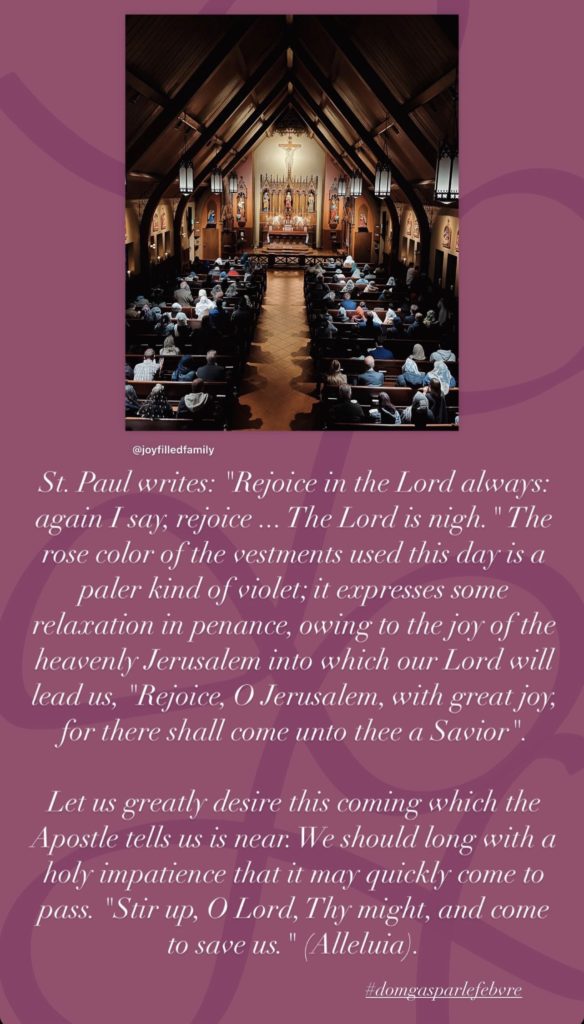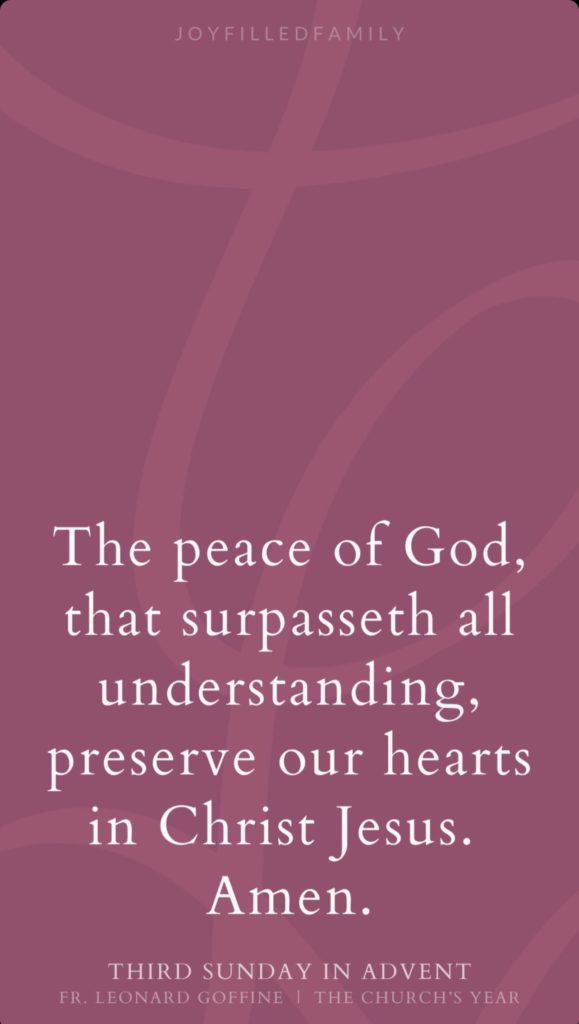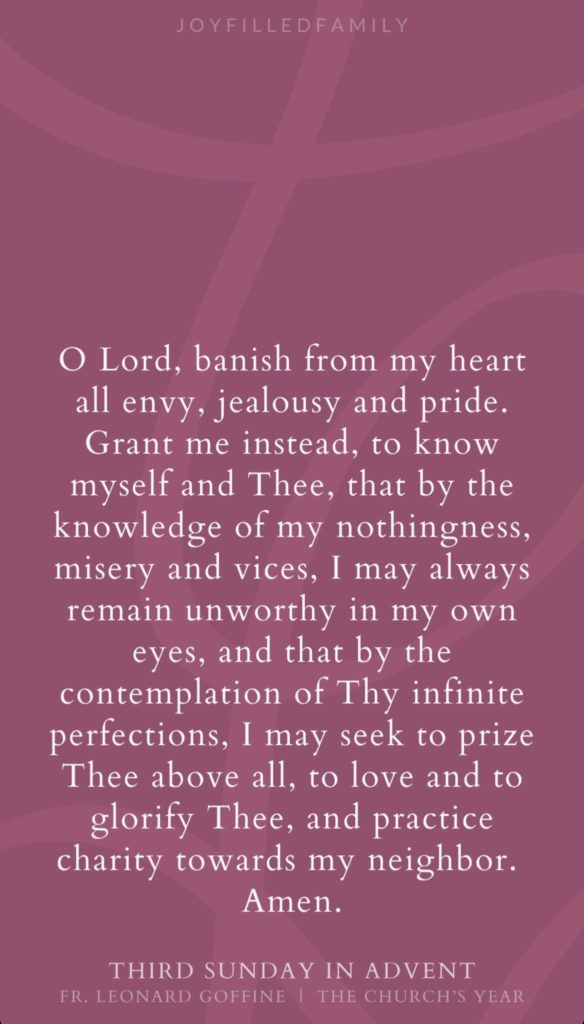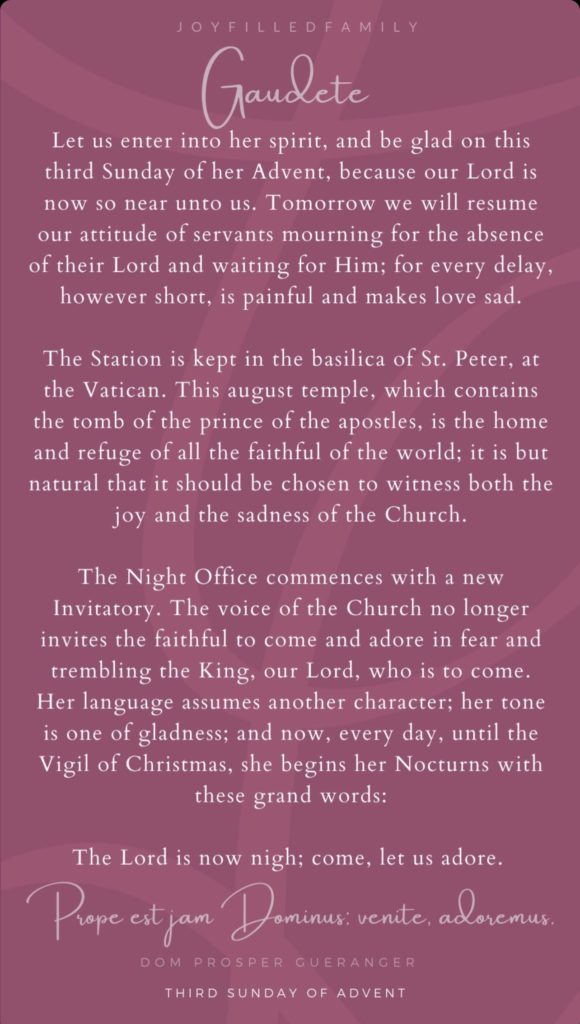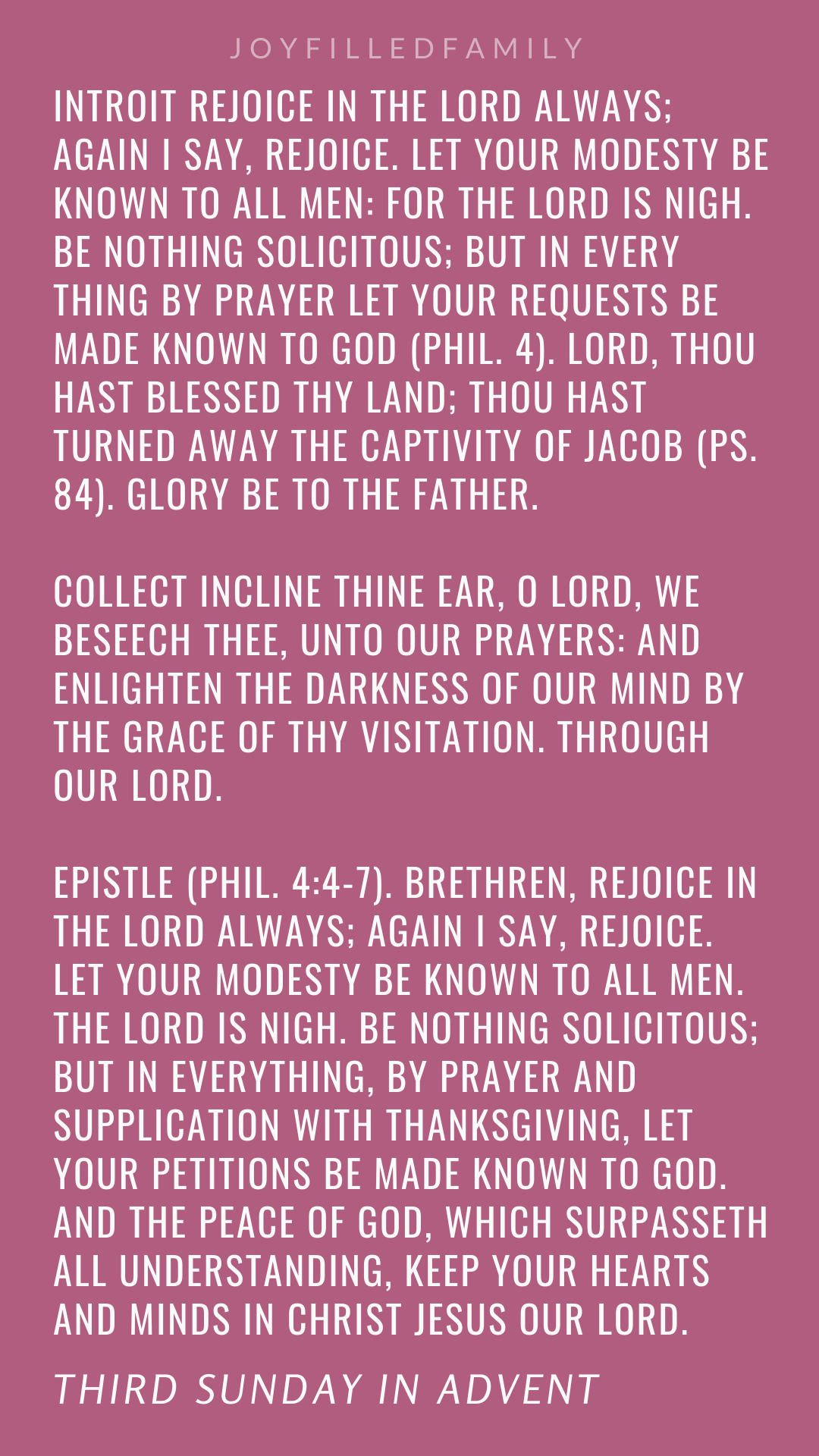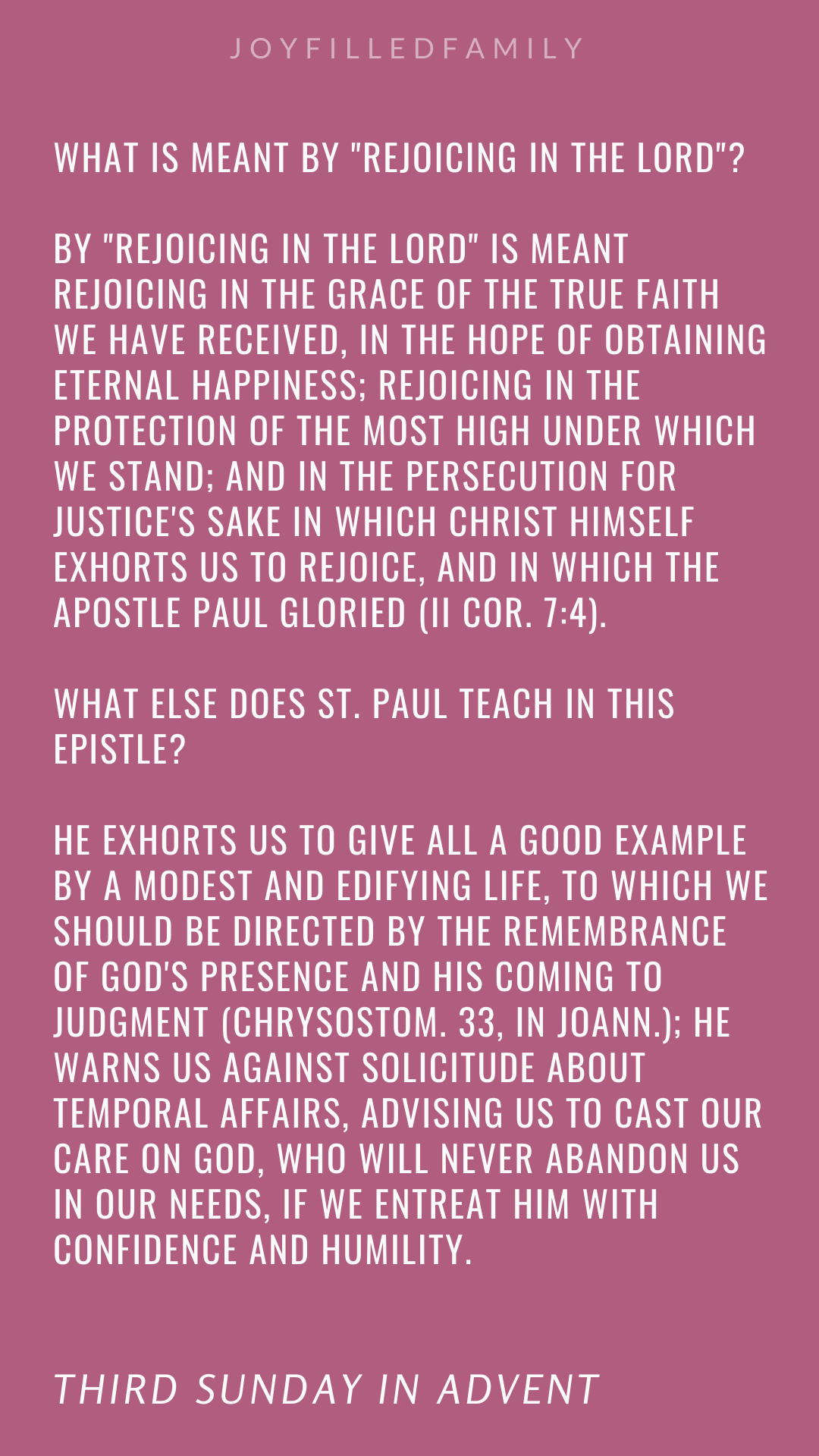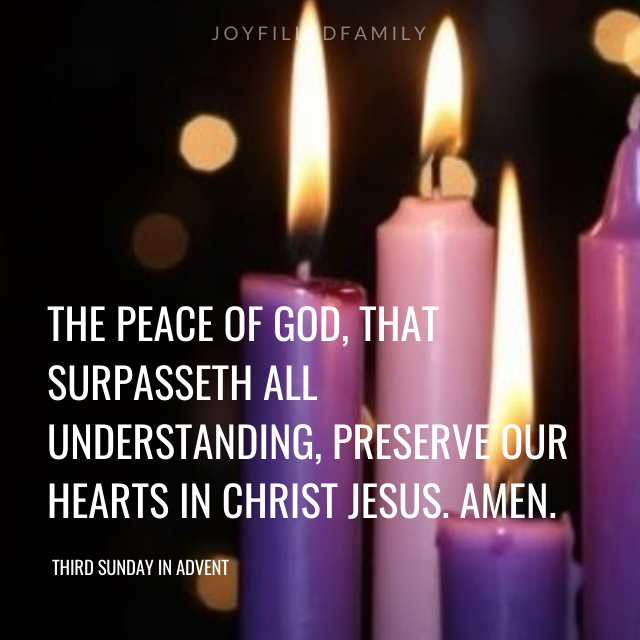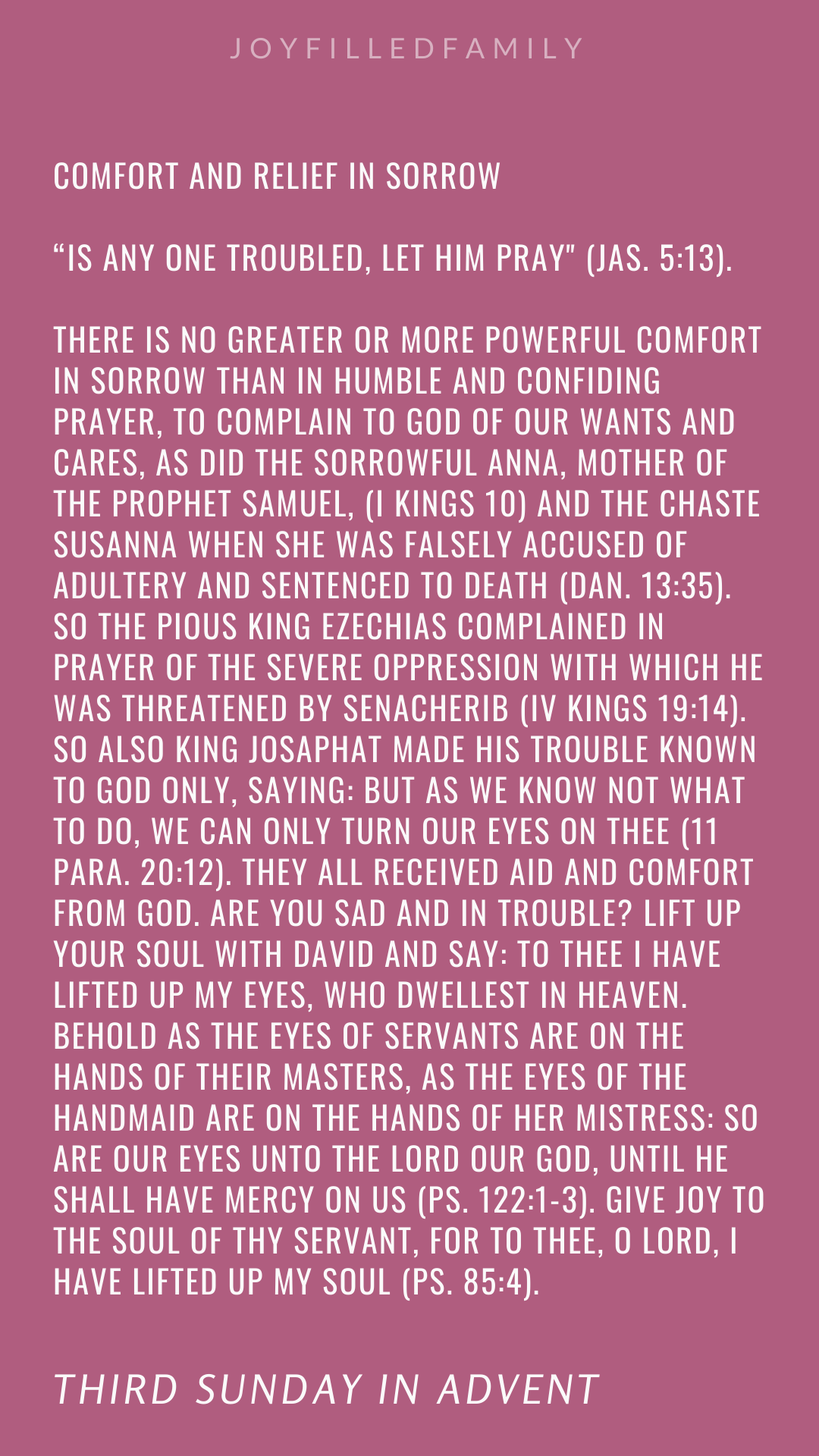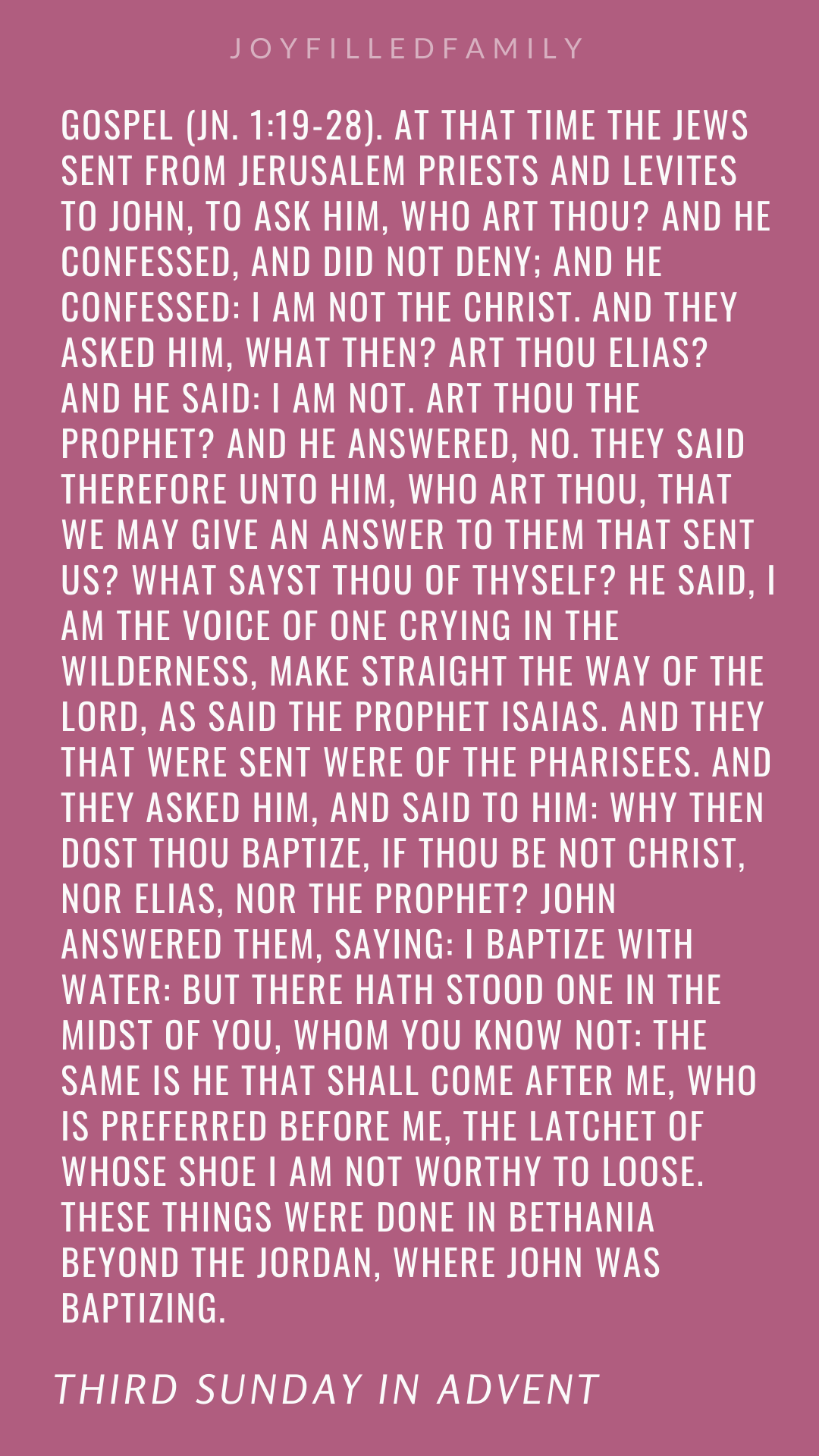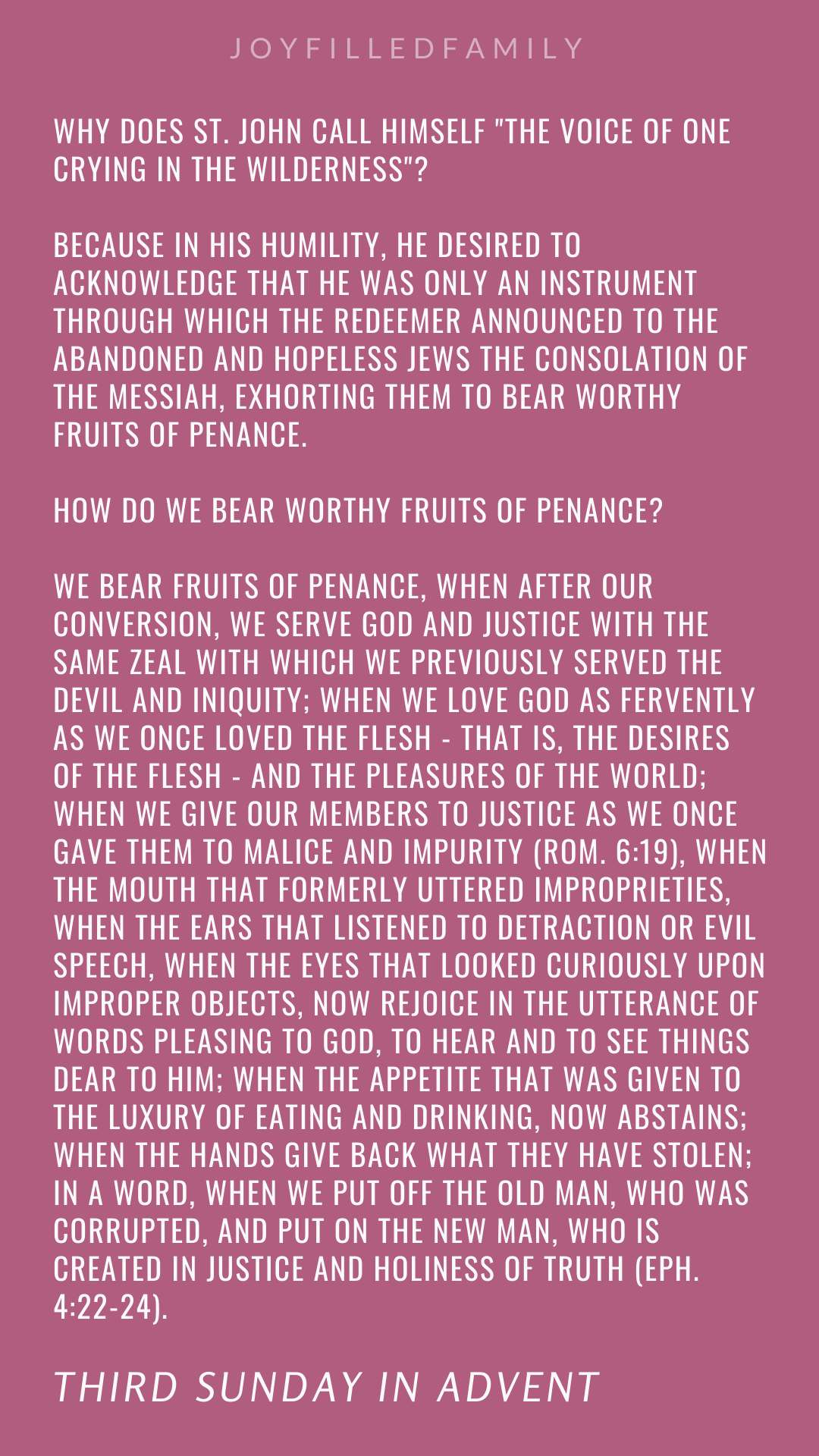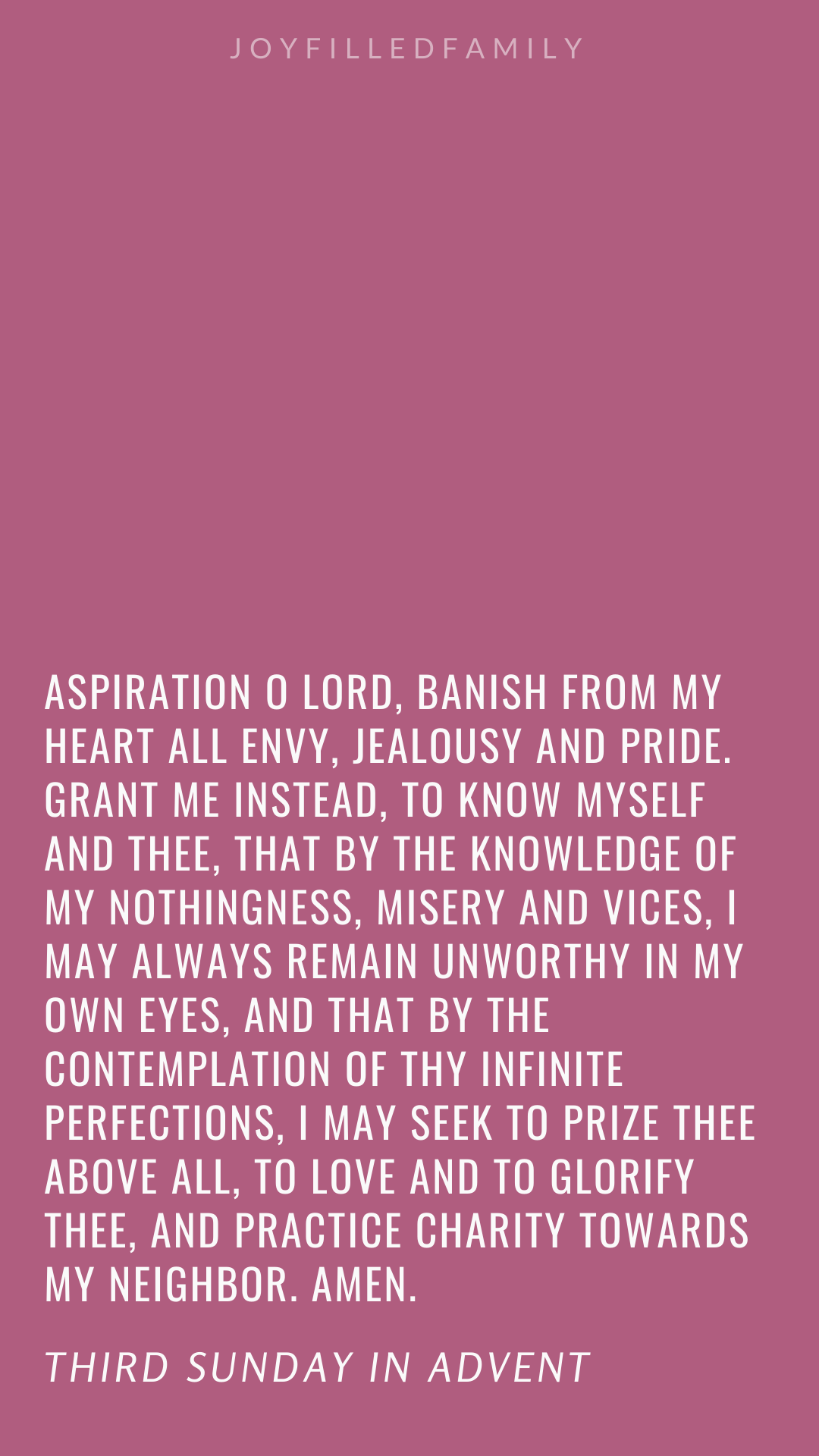There is no exercise which is more pleasing to God, or more meritorious, or which has greater influence in infusing solid piety into the soul, than the assisting at the holy sacrifice of the Mass. If this be true at all the various seasons of the Christian year, it is so, in a very special manner, during the holy time of Advent. The faithful, therefore, should make every effort in order to enjoy this precious blessing, even on those days when they are not obliged to it by the precept of the Church. #domprospergueranger
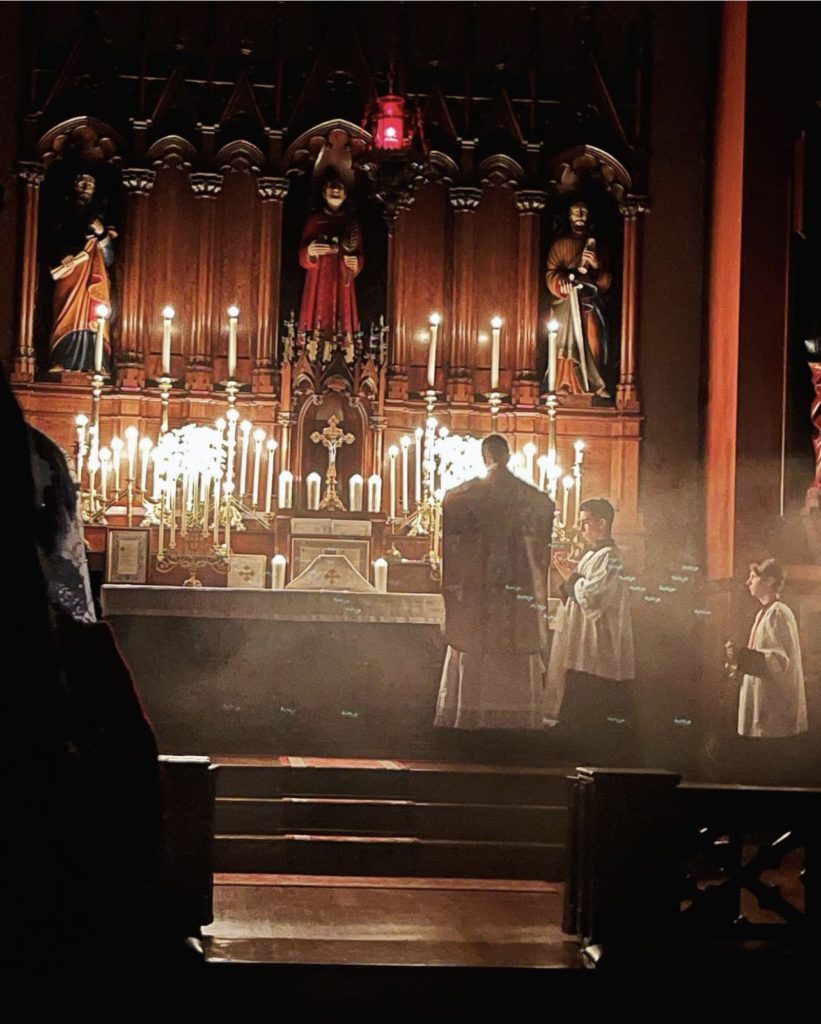
➕
The beauty and austerity of the morning can not be put into words. The senses are drawn in more than ever before.
Some years we all go and other times one of us stays behind with the littles.
We wake up at 3am to prepare for this Holy Mass and depart at 4:30am, arriving before the gates open.
We remind the children about the darkness that we will be surrounded with in the Church, the world, and that which is placed before us for this Holy Mass. We impress the necessity for us to trust in the maternal love of Our Lady for all our needs as we prepare for Holy Mass.
Holy Mass begins and all the worries fade. The darkness is almost unnoticeable as all the senses are drawn into the true light. It’s all a beautiful preparation for the Christchild.
Divine Infant King Jesus, come down into our hearts! 🙏🏼
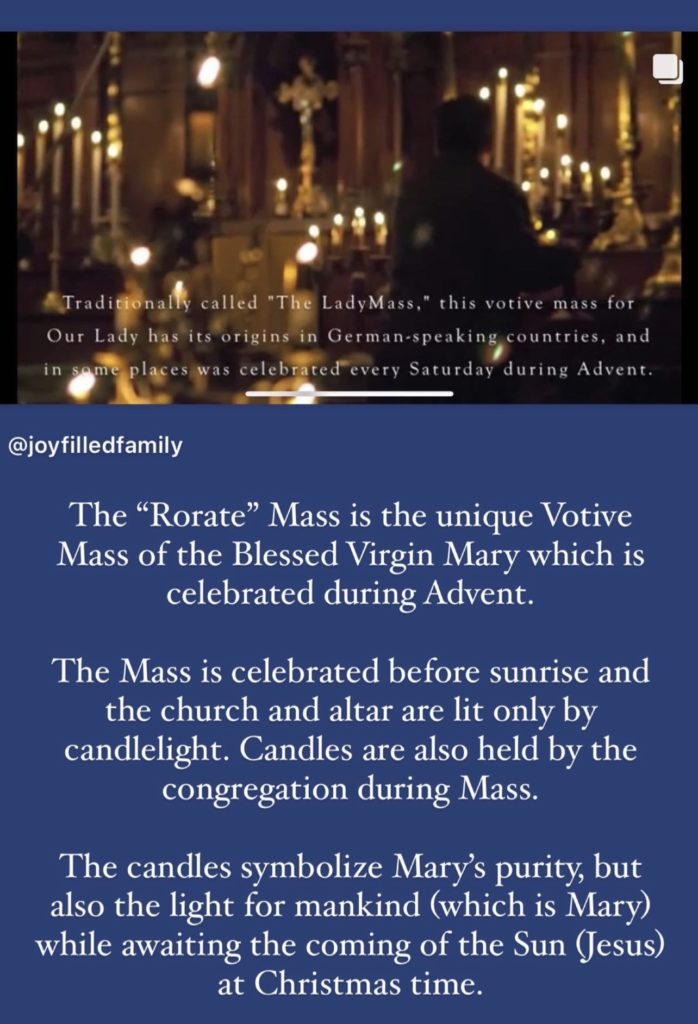
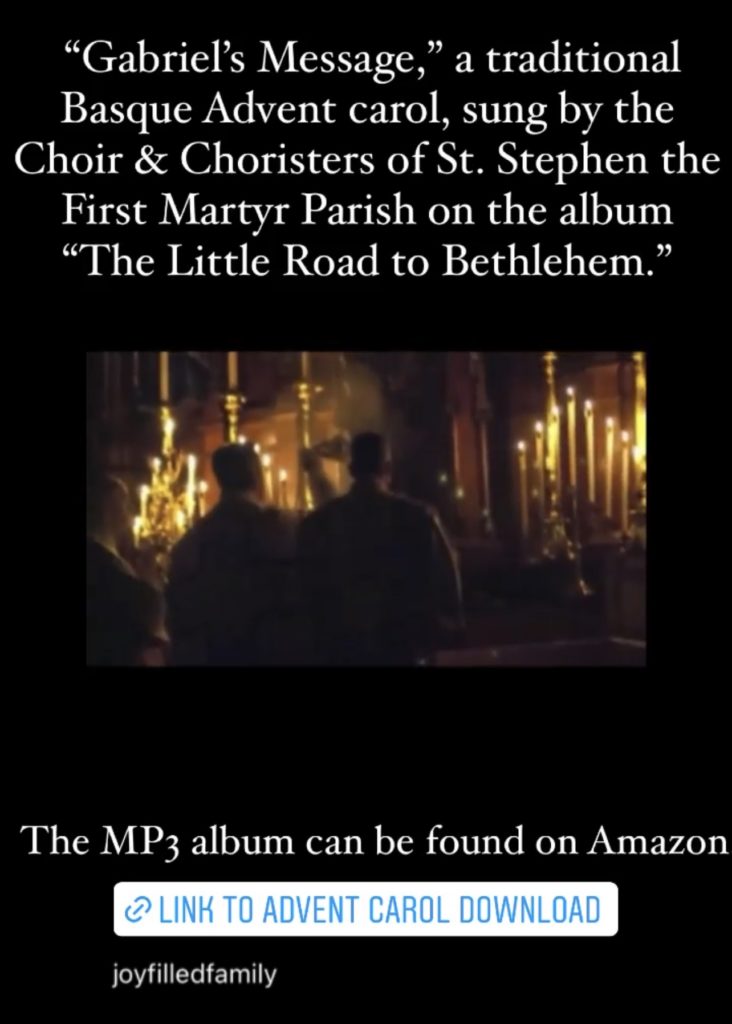
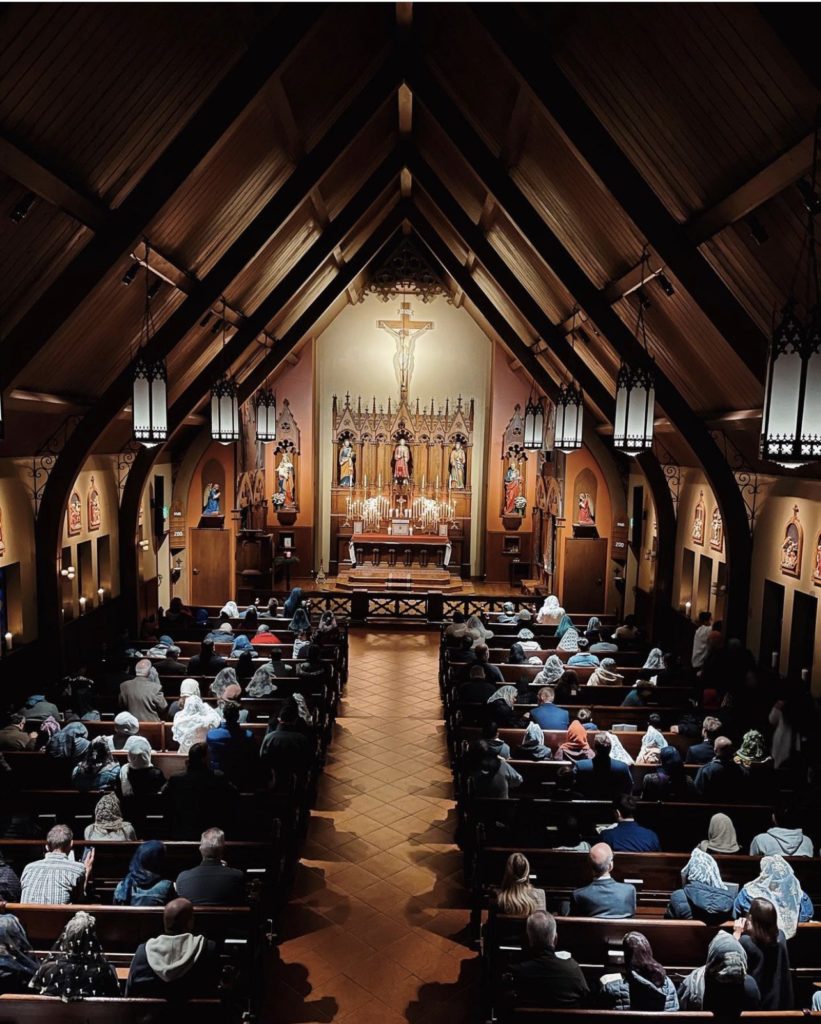
The following Advent reflection is one worth reading for all.

➕
Everyone who acknowledges me before men, I will also acknowledge him before my Father.
—Mt. 10:32
Meditation
Our Lord may be the occasion of fall in different ways and notably by human respect. As the name indicates, human respect is the respect of man, but an exaggerated respect, a respect which leads us to renounce doing good to our neighbor by fear of displeasing him.
This subject is especially pertinent insofar as Catholics today are easily singled out and ridiculed.
The desire which we have of pleasing men and the exaggerated fear which we have of displeasing them can make us not dare to bear witness to our Faith. As Bourdaloue says, “We are ashamed to declare ourselves [Christians] and we do not see that this shame is in itself more shameful than the declaration we would have to make. A word, a mockery troubles us, and we do not consider by what or by whom we are letting ourselves be troubled. By what? Since there is nothing more frivolous than mockery when it is attacking virtue. By whom? Since it is by vain men whose blame or approval ought to matter to us but little.”
Under pretext of not shocking people, we may be leaving them in their mediocrity. Human respect puts a muzzle on us and prevents us from being apostles.
Let us acknowledge that this excessive timidity is unworthy of a Catholic and let us strive to make up for it in the future.
Lord Jesus, give me the grace to overcome human respect when Thy honor is at stake. I wish from now on to defend the Catholic Faith, with humility and prudence but also with strength and constancy.
Prayer
O Jesus, who left the imprint of Thy holy Face on the veil of St. Veronica, deign so to imprint Thy features on my soul that, fortified by the courage of this holy woman, never again may I let myself be drawn down by cowardly human respect.
—Way of the Cross, 6th station
➕
This meditation is taken from #adventtoepiphany
I pray that your Advent has been fruitful thus far and that you have a blessed Gaudete Sunday. 💜💗
Second Sunday in Advent
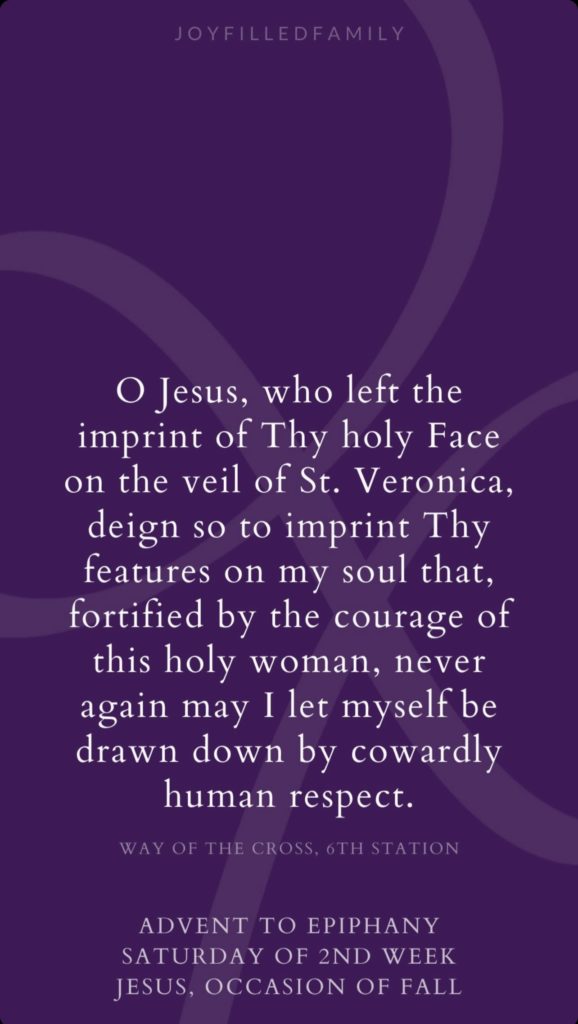
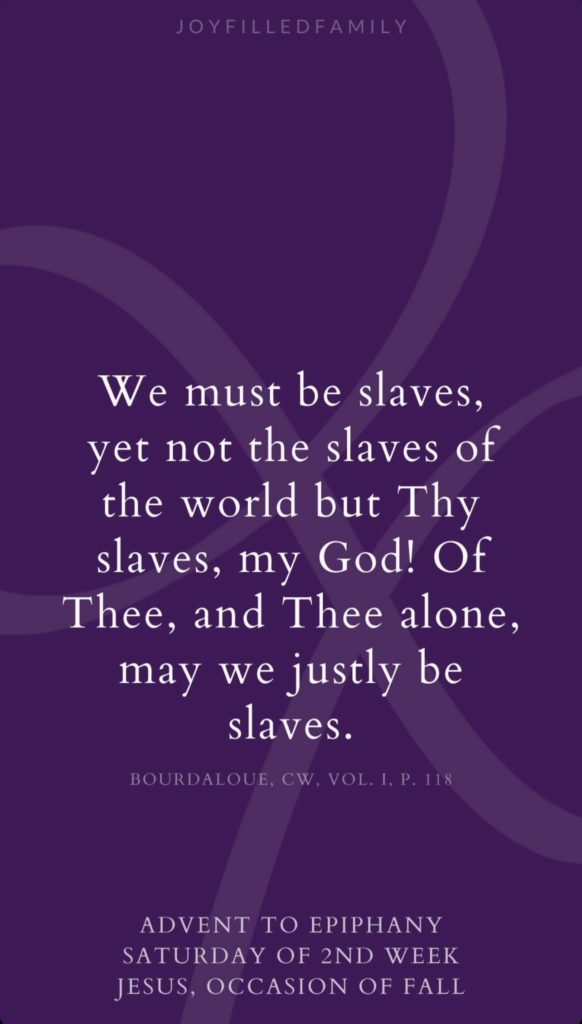
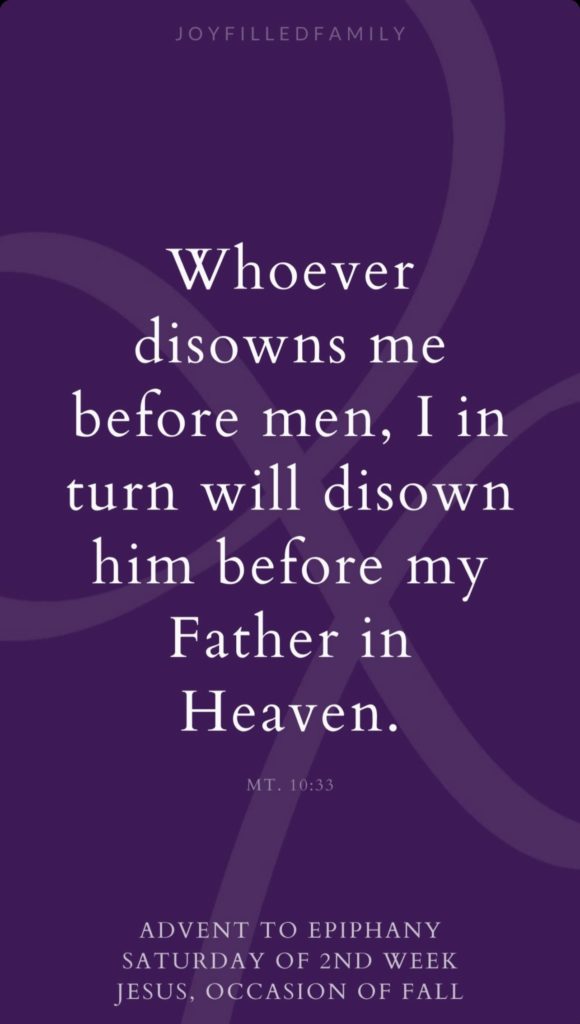
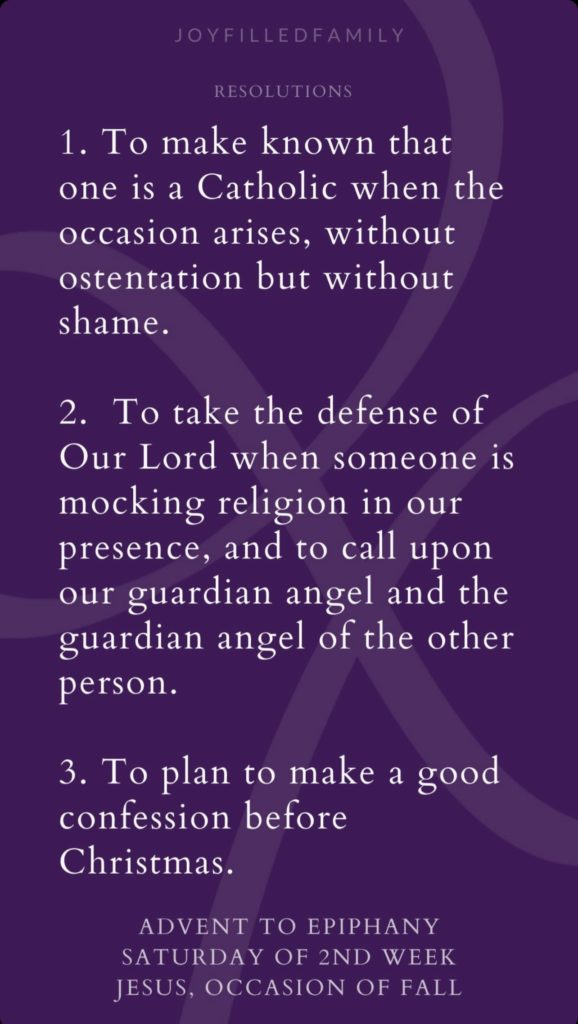
Third Sunday in Advent
Let us enter into her spirit, and be glad on this third Sunday of her Advent, because our Lord is now so near unto us. Tomorrow we will resume our attitude of servants mourning for the absence of their Lord and waiting for Him; for every delay, however short, is painful and makes love sad.
The Station is kept in the basilica of St. Peter, at the Vatican. This august temple, which contains the tomb of the prince of the apostles, is the home and refuge of all the faithful of the world; it is but natural that it should be chosen to witness both the joy and the sadness of the Church.
The Night Office commences with a new Invitatory. The voice of the Church no longer invites the faithful to come and adore in fear and trembling the King, our Lord, who is to come. Her language assumes another character; her tone is one of gladness; and now, every day, until the Vigil of Christmas, she begins her Nocturns with these grand words:
The Lord is now nigh; come, let us adore. #domprospergueranger
